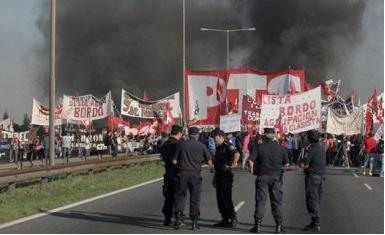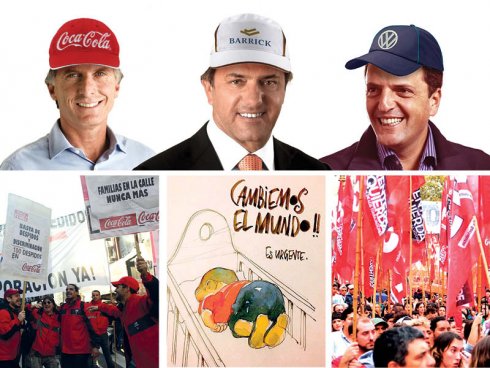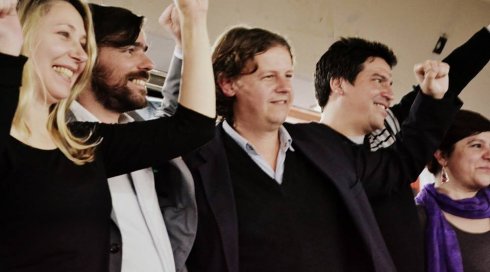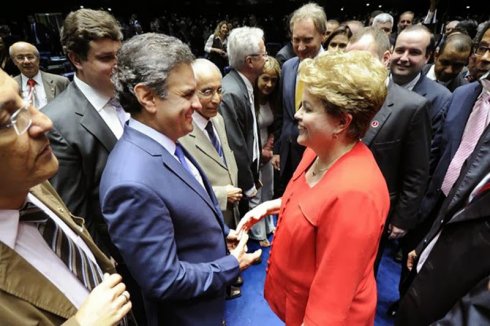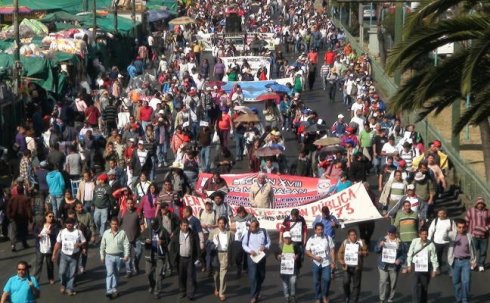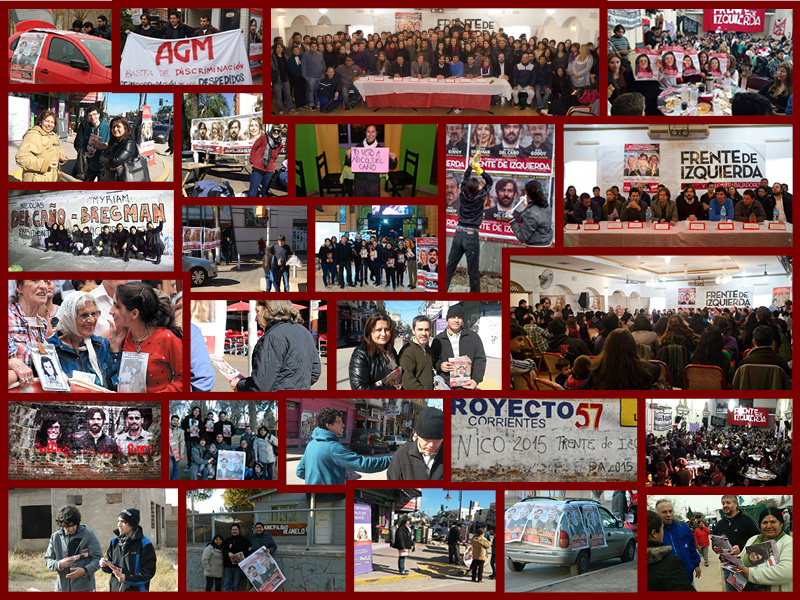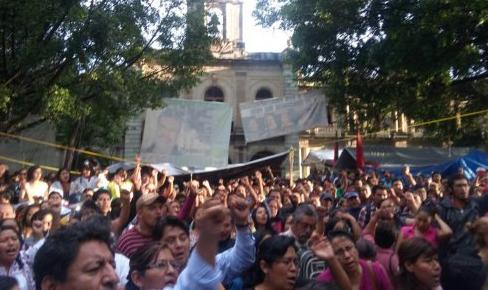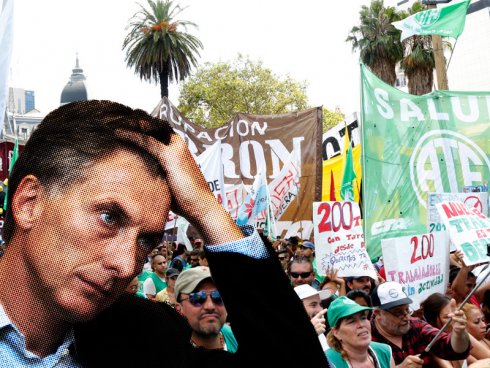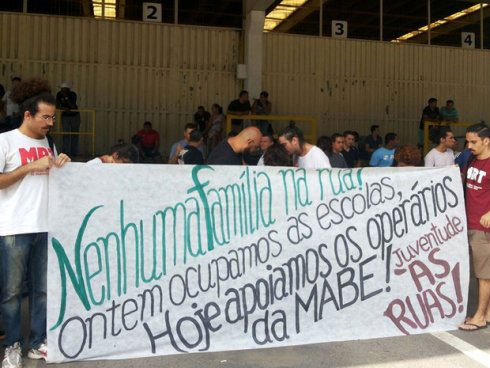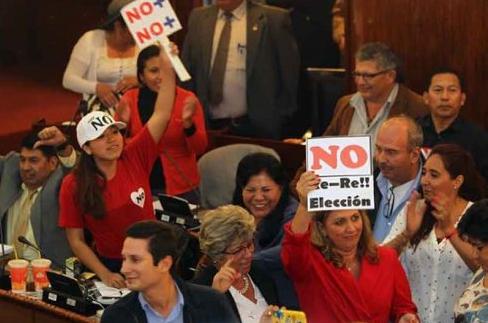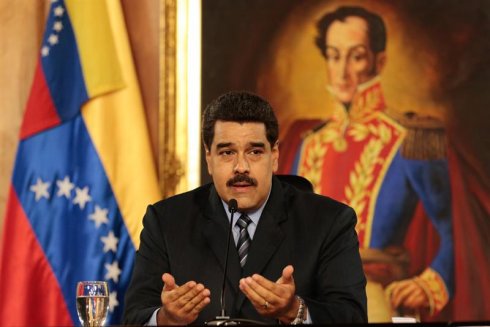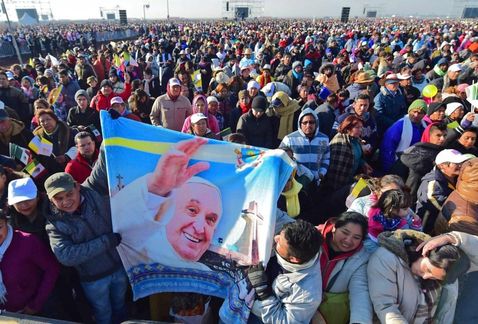Cuba
Raúl announces an attack on the workers’ conquests
17/08/2010
Step by step...
Raúl recalled the words of First Vice President José Ramón Machado, who in the July 26 official speech (where neither Raúl nor Fidel spoke) said, "Step by step, at the pace we decide, without improvising or rushing, in order to avoid mistakes and permanently leave behind errors or measures that are not suitable for current conditions," thus defending gradualism in applying reforms.
The lack of concessions by US and European imperialism, after the political prisoners were released, appears to have postponed for now the possibility of a decisive leap onto a "Cuban road to capitalist restoration", if they do not have any guarantee that by yielding to imperialist pressures, the basic interests of the bureaucracy would be preserved. However, the worsening of the Cuban economic crisis, as a result of the drop in nickel exports, remittances and income from tourism, and Venezuela’s difficulties, are aggravating the internal disputes in the bureaucracy, and strong groups want to accelerate the "opening," while some critical voices are being raised inside the PCC [Cuban Communist Party] itself, worried by the direction of the economy and the deterioration of the regime.
In order to limit that dissent, Raúl claimed that "unity ... between the leadership of the Revolution and the majority of the people is our most important strategic weapon." Meanwhile, in recent days, Fidel stated that he was feeling "completely recovered" and greatly increased his public appearances and, although he did not directly support the measures, he let Raúl lead without upstaging him with his presence in ceremonies like that of the National Assembly, giving signs that the historic leadership remains united, in spite of its differences, in order to strengthen its arbitration over the different wings of the bureaucracy.
In spite of the rambling reaffirmation of socialism by Raúl and statements like those of Marino Murillo, the Minister of the Economy and Planning, in front of the National Assembly, that in the "updating" of the economic system that the government is studying, "it will continue running centralized planning" and state property, concessions to international capital, like the negotiations to build 16 tourist complexes with golf courses and homes to sell to foreigners (a policy begun in the 1990’s and suspended some years ago) indicate the direction.
Labor counter-reforms
Raúl announced that government jobs will be cut massively in a three-year plan, while the unemployment subsidy (a wage guarantee) will be reduced. "In a first phase, that we have planned to conclude in the first quarter of next year, work and wage treatment of available and suspended (jobless) workers from a group of organizations of the central government administration, will be changed, by abolishing the paternalistic approaches that discourage the need to work to live and with that, reducing unproductive expenditures, that egalitarian pay entails, independently of the years of work, of a wage guarantee for long periods to people who do not work." According to the government, 1.3 million people on the government payroll "are not needed," almost a third of the workforce of 4,950,000 people, of whom 90% are employed by the government, while today scarcely some 150,000 people work independently.
Likewise, greater spaces for self-employment, small businesses and cooperatives and private hiring of wage earners (something limited until now to the agricultural sector) will be legalized. "Broadening the practice of freelance work and its use as another alternative of work for surplus workers, eliminating several current prohibitions of granting new licenses and the commercialization of some production, relaxing the hiring of workers." These are two sides of the same policy aimed at reducing the fiscal budget, that aims at disciplining the workforce and, under the fear of unemployment and competition for wages, getting workers used to the conditions of a capitalist "labor market," abolished in Cuba since the Revolution, but which would be essential in a process of restoration. In fact, the measures openly undermine full employment and the prohibition against the exploitation of paid labor by private individuals, two very important social gains of the Revolution.
The bureaucracy, not the worker, is responsible for low productivity
"We must eliminate forever the notion that Cuba is the only country in the world where one can live without working," Raúl states, celebrating ahead of time "the significant contribution to improving social and labor discipline that comes from the application of these measures." But the one responsible for low productivity is not the worker, nor social egalitarianism that [allegedly] would have turned the Cuban workers into "slackers." The Cuban economy is backward and scarcely industrialized, which is why the productivity of labor is low, owing to structural reasons, but disastrous bureaucratic management contributes to lowering productivity still further, by wasting resources, sabotaging planning and spreading disorganization, neglect and corruption, while it excludes the workers from making decisions that affect their labor, the enterprise and the whole country, reducing wages to a paltry amount, that, even with a ration book, is insufficient to live on, which pushes many to the most varied forms, legal or not, of "solving" daily needs in contrast to the good situation of the cadres [officials] and managers, which encourages skepticism and a corrosive "double standard."
A female Cuban scholar (who appears to have a vision of self-management of enterprises) [1] quotes some examples of "the serious fact that wages commonly fail to meet basic needs. Because of this situation, as a director expressed, ’the workers come with all their problems and unload them here.’ They are not motivated to work at their optimum levels of productivity, because they see no value in the wages.’" It is common that enterprises receive only a part of the financial resources contemplated by the plan, and that happens already late in the second half of the year. Although generally the deliveries of raw materials defined in the plan take place, this does not always happen in the time required; thus, possibilities of sales are lost, that cannot be recovered. Ironically this instability of the enterprises’ access to productive resources is a problem that they suffer in a market economy, that planning should solve."
Bureaucratic management "does not allow the workers’ opinions, the special features of the enterprises, their requests, their interdependence with other measures, nor their unanticipated effects, to be taken into account." The measures announced by Raúl do not affect the bureaucracy and its privileges, but they do entail a serious attack on the Cuban proletariat, while they favor the newly rich and middle groups that can use the government’s "liberated" workforce for their own benefit.
For a workers’ plan
Raúl is preparing meetings with the leadership of the CTC to line up the unions in carrying out these measures and preventing the dissatisfaction of the rank and file from developing. But the unions’ role should be to reject them and raise workers’ demands.
Neither a bureaucratic whip nor self-management by managers, nor pro-capitalist reforms. In view of the crisis, a workers’ plan is needed, the immediate aim of which should be to preserve the forces of the Cuban working class, the fundamental social basis in the state that arose from the Revolution and the key force to defend and surpass its conquests. And for this, it is necessary to
attack the privileges and perquisites of the bureaucracy, and, next to that, to strengthen systematically the fund for wages and face a plan for industrialization that will permit better distribution of the workforce and raising productivity.
Collective workers’ control would be a fantastic lever against bureaucratic corruption and waste and would prepare the way for the general revision of the plan in accordance with the interests of the workers and the Revolution, by decreasing inequality in incomes and concessions to the market and to foreign capital, to the minimum compatible with restoring the health of the nationalized economy.
Neither a single party, nor a bourgeois parliamentary system. Revolutionary workers’ democracy!
Measures like the ones preceding are impossible without ending the bureaucracy’s stifling control over the unions, which denies the workers any real participation in making economic and political decisions at any level. It is necessary to impose the broadest freedom of organization for the workers’ movement and that of the masses, by driving the bureaucracy out of the organizations of the masses that retain vitality, or by creating different new ones without government guidance, which includes legality for those political tendencies that defend the Revolution. Against the cynical policy of the "dissidents" and the church, that are acting in the service of the United States’ and the European Union’s line of democratic counter-revolution, and at the same time that we condemn the criminal blockade by the US and all imperialist interference, we affirm that it is necessary to put an end to the stifling and repressive one-party regime, but by imposing a revolutionary workers’ democracy, with the mobilization and self-organization of the workers, that is, a new power based on the councils of workers and campesinos. Only a program of political revolution (including those social tasks in opposition to the already-established enclaves "of the market" and foreign capital) can save the island from the danger of capitalist restoration and re-colonization by the US. Fighting with this perspective involves strengthening the bonds between the workers of the entire continent and of Cuba, independently of the bureaucracy and its chavista and populist friends, and against the common imperialist enemy and its agents, even to completing a Federation of Socialist Republics of Latin America, in a revolutionary manner.
NOTASADICIONALES
[1] Camila Piñeiro Harnecker, "La empresa cubana estatal y su entorno nacional actual," Revista Siglo XXI, Cuba, Octubre 2009
